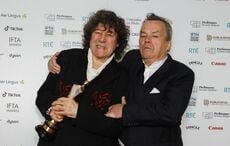While critics have praised Daniel Day-Lewis' portrayal of Abraham Lincoln in the the new Steven Spielberg biopic of the best loved US president, the strained, high-pitched voice the actor uses in the film has been heavily criticized.
In "Lincoln," the actor gives the 16th president a "high-pitched, wavering tone" that is like the voice of Mr Burns from "The Simpsons," reports the Telegraph.
Time magazine’s critic said that Day-Lewis speaks in a “thin, reedy” voice, while CBS News said the his voice was “scratchy and not what audiences had come to expect."
Film fans also discussed the 55-year-old actor's vocal choices via Twitter.
“I've always imagined Lincoln’s voice as deep and resonant to match his place in history,” said one.
“This Abraham Lincoln you’re making a movie on - please, choose someone with a stronger voice,” Tweeted another.
Other comments included: "Is it me or does Abe Lincoln sound a lot like Mr Burns?" and “I refuse to believe that’s how he sounded.”
Lincoln has been portrayed by actors such as Gregory Peck, Hal Holbrook and Jason Robards, but they always used a stentorian tone.
However, Day-Lewis is known for delving deep into the roles he plays. He spent a year researching the role and remained in character throughout filming. Co-star Sally Field said he even sent text messages in the style of Lincoln.
The Oscar-winning actor said the voice materialized "in my mind's ear."
He added, "If I hear a voice, I tend to believe that I hear it for good reason.”
After working on the voice in private he sent a recording to Spielberg in an envelope marked with a skull and crossbones.
The director recalled: “It was like Mission: Impossible - I didn’t know what was going to explode first, the envelope or me.
“I turned on the tape recorder and I have to say, without hesitation, that my eyes welled up. Abraham Lincoln was talking to me.”
Day-Lewis' vocal portrayal is probably more accurate than his acting predecessors according to Harold Holzer, a Lincoln scholar. He told CBS News: “Lincoln died long before audio recording was possible so we have no hints about what he really sounded like, except the reminiscences of his contemporaries.
“The most frequent things we read are that he had a nasal, high voice that somehow miraculously floated over large crowds.”
Holzer called Day-Lewis’s performance “extraordinary."
“I wish we could have someone come back from the 1860s and say, ‘That’s the guy.'"




Comments